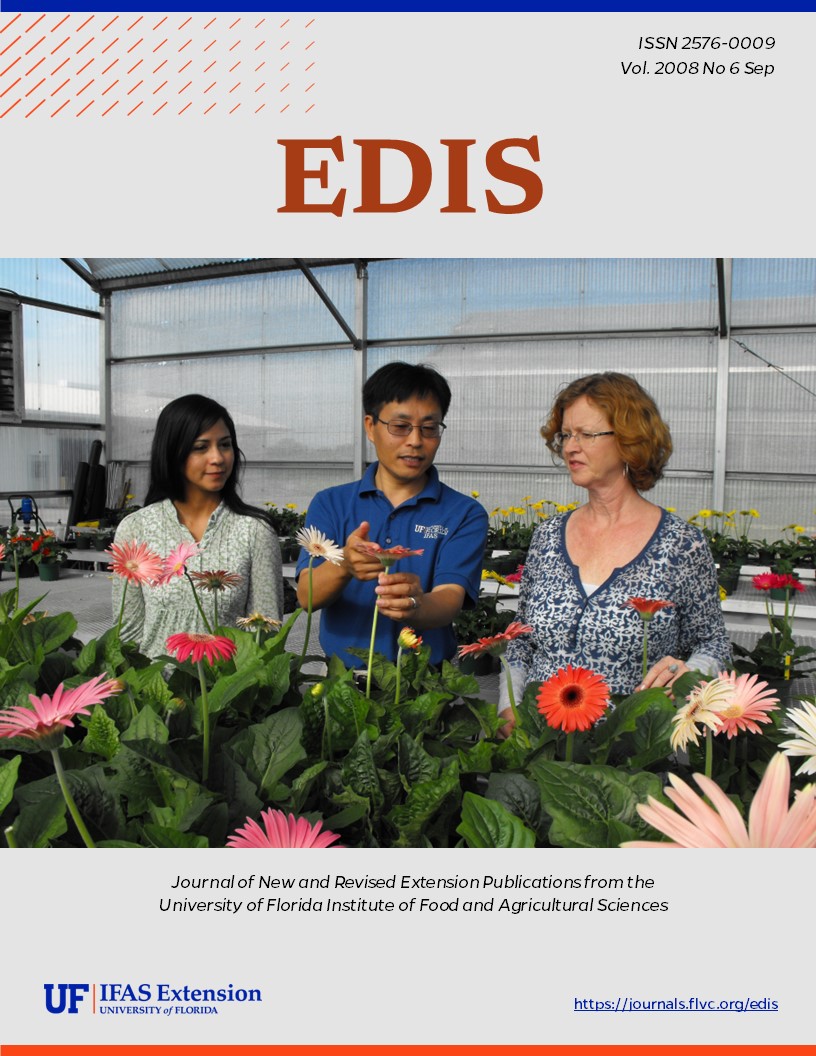Abstract
FOR-175, a 6-page illustrated fact sheet by Bruce Hull, Sarah F. Ashton, Rien M. Visser, and Martha C. Monroe, discusses aesthetic and recreational considerations for forest management in the interface between urban and rural areas. Published by the UF School of Forest Resources and Conservation, February 2008.
FOR 175/FR233: Forest Management in the Interface: Amenity Resources (ufl.edu)
References
Bell, S. 1997. Design for Outdoor Recreation. London UK: E & FN Spon. https://doi.org/10.4324/9780203362334
Cordell, H. K.; D. B. K. English; and S. A. Randall.1993. Effects of Subdivision and Access Restrictions on Private and Recreation Opportunities (Gen. Tech. Rep. RM-231). Fort Collins CO: USDA, Forest Service, Rocky Mountain Forest and Range Experiment Station.
Dehring, F. J. and F. J.Mazzotti. 1997. Impacts of Equestrian Trails on Natural Areas(WEC122). Gainesville FL: University of Florida, Institute of Food and Agricultural Sciences, Florida Cooperative Extension Service, Wildlife Ecology and Conservation Department, http://edis.ifas.ufl.edu/UW122 (accessed July 15, 2005).
Dwyer, J. F.; E. G. McPherson; H.W. Schroeder; and R. Rowntree. 1992. "Assessing the Benefits and Costs of the Urban Forest." Journal of Arboriculture 18 (5): 227-234.
Hubbard, B.; D. Faircloth; and A. Long. 1999. Recreation Options for Your Forestland (SS-FOR-4). Gainesville FL: University of Florida, Institute of Food and Agricultural Sciences, Florida Cooperative Extension Service, School of Forest Resources and Conservation, http://edis.ifas.ufl.edu/FR057 (accessed July 15, 2005).
Hultsman, J.; R. L. Cottrell; and W. Z. Hultsman. 1998. Planning Parks for People, 2nd edition. State College PA: Venture Press.
Jacob, J. C. 1997. New Pioneers: The Back-to-the-Land Movement and the Search for a Sustainable Future. University Park PA: The Pennsylvania State University Press.
Kaplan, R. and S. Kaplan. 1989. The Experience of Nature: A Psychological Perspective. New York: Cambridge University Press.
Magill, A. 1994. "What People See in Managed and Natural Landscapes." Journal of Forestry 92(9):2-16.
McPherson, G. and J. Simpson. 1995. "Shade Trees as a Demand-Side Resource." Home Energy Magazine Online 12(2), http://homeenergy.org/archive/hem.dis.anl.gov/eehem/95/950307.html (accessed August 16, 2004).
Schmitt, P. J. 1990. Back to Nature: The Arcadian Myth in Urban America. Baltimore MD: John Hopkins University Press.
U.S. Department of Energy. 1995. Landscaping for Energy Efficiency. http://www.eere.energy.gov/consumer/your_home/landscaping/index.cfm/mytopic=11910 (accessed September 16, 2004).
U.S. Department of Transportation. 2004. Recreation Trails Program Publications, http://www.fhwa.dot.gov/environment/rectrails/publications.htm#Trail (accessed November 15, 2004).
U.S. Department of Transportation. 2005. Federal Highway Association website on Traffic Noise, http://www.fhwa.dot.gov/environment/htnoise.htm and http://www.nonoise.org/library/highway/traffic/traffic.htm (accessed August 17, 2005).

